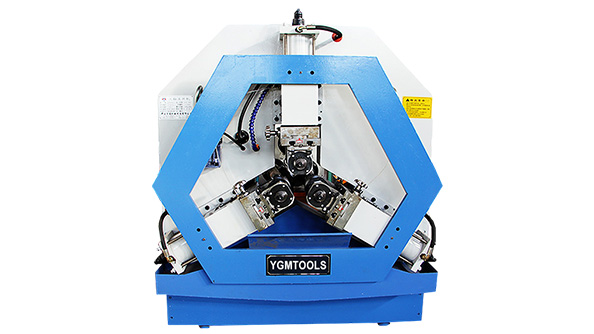
-
 Afrikaans
Afrikaans -
 Albanian
Albanian -
 Amharic
Amharic -
 Arabic
Arabic -
 Armenian
Armenian -
 Azerbaijani
Azerbaijani -
 Basque
Basque -
 Belarusian
Belarusian -
 Bengali
Bengali -
 Bosnian
Bosnian -
 Bulgarian
Bulgarian -
 Catalan
Catalan -
 Cebuano
Cebuano -
 Corsican
Corsican -
 Croatian
Croatian -
 Czech
Czech -
 Danish
Danish -
 Dutch
Dutch -
 English
English -
 Esperanto
Esperanto -
 Estonian
Estonian -
 Finnish
Finnish -
 French
French -
 Frisian
Frisian -
 Galician
Galician -
 Georgian
Georgian -
 German
German -
 Greek
Greek -
 Gujarati
Gujarati -
 Haitian Creole
Haitian Creole -
 hausa
hausa -
 hawaiian
hawaiian -
 Hebrew
Hebrew -
 Hindi
Hindi -
 Miao
Miao -
 Hungarian
Hungarian -
 Icelandic
Icelandic -
 igbo
igbo -
 Indonesian
Indonesian -
 irish
irish -
 Italian
Italian -
 Japanese
Japanese -
 Javanese
Javanese -
 Kannada
Kannada -
 kazakh
kazakh -
 Khmer
Khmer -
 Rwandese
Rwandese -
 Korean
Korean -
 Kurdish
Kurdish -
 Kyrgyz
Kyrgyz -
 Lao
Lao -
 Latin
Latin -
 Latvian
Latvian -
 Lithuanian
Lithuanian -
 Luxembourgish
Luxembourgish -
 Macedonian
Macedonian -
 Malgashi
Malgashi -
 Malay
Malay -
 Malayalam
Malayalam -
 Maltese
Maltese -
 Maori
Maori -
 Marathi
Marathi -
 Mongolian
Mongolian -
 Myanmar
Myanmar -
 Nepali
Nepali -
 Norwegian
Norwegian -
 Norwegian
Norwegian -
 Occitan
Occitan -
 Pashto
Pashto -
 Persian
Persian -
 Polish
Polish -
 Portuguese
Portuguese -
 Punjabi
Punjabi -
 Romanian
Romanian -
 Russian
Russian -
 Samoan
Samoan -
 Scottish Gaelic
Scottish Gaelic -
 Serbian
Serbian -
 Sesotho
Sesotho -
 Shona
Shona -
 Sindhi
Sindhi -
 Sinhala
Sinhala -
 Slovak
Slovak -
 Slovenian
Slovenian -
 Somali
Somali -
 Spanish
Spanish -
 Sundanese
Sundanese -
 Swahili
Swahili -
 Swedish
Swedish -
 Tagalog
Tagalog -
 Tajik
Tajik -
 Tamil
Tamil -
 Tatar
Tatar -
 Telugu
Telugu -
 Thai
Thai -
 Turkish
Turkish -
 Turkmen
Turkmen -
 Ukrainian
Ukrainian -
 Urdu
Urdu -
 Uighur
Uighur -
 Uzbek
Uzbek -
 Vietnamese
Vietnamese -
 Welsh
Welsh -
 Bantu
Bantu -
 Yiddish
Yiddish -
 Yoruba
Yoruba -
 Zulu
Zulu
Custom Designed Thread Rolling Machines for OEM Applications and Precision Manufacturing
The Importance of OEM Thread Rolling Machines in Modern Manufacturing
In today’s rapidly evolving manufacturing landscape, the efficiency and precision of production processes are paramount. Among the various technologies that facilitate these goals, OEM (Original Equipment Manufacturer) thread rolling machines play a crucial role. These machines are integral to the production of high-quality threaded fasteners, which are essential components used in numerous industries, from automotive to aerospace.
At its core, a thread rolling machine is designed to create threads on cylindrical parts through a cold deformation process. This method is different from traditional machining, which involves cutting away material. Instead, thread rolling reshapes the material itself, resulting in a stronger, more durable thread. The benefits of using OEM thread rolling machines are numerous, and understanding these advantages can illuminate why they are becoming a preferred choice for manufacturers.
Enhanced Strength and Durability
One of the primary advantages of thread rolling over conventional machining is the improved mechanical properties of the finished product. The cold working process used in thread rolling aligns the grain structure of the metal, significantly increasing its tensile strength. This is particularly essential for applications where high loads and stresses are common, such as in automotive engines or aerospace components. By using OEM thread rolling machines, manufacturers can produce fasteners that are not only stronger but also more resistant to fatigue and wear.
Cost-Efficiency and Speed
In addition to strength, OEM thread rolling machines offer significant cost savings for manufacturers. The thread rolling process is notably faster than traditional machining methods, enabling companies to increase their production rates and meet growing market demands. Moreover, since thread rolling generates minimal waste, it contributes to lower material costs. This efficiency translates into shorter lead times, allowing manufacturers to respond quickly to customer requirements, thereby enhancing their competitive edge.
Precision Engineering
oem thread rolling machine

Precision is critical in manufacturing, especially when it comes to threaded components. OEM thread rolling machines are designed to produce threads that meet exact specifications, making them suitable for high-tolerance applications. With advanced technology integrated into these machines, manufacturers can achieve consistent quality and dimensional accuracy. This is crucial in industries where even minor deviations can lead to catastrophic failures.
Versatile Applications
OEM thread rolling machines are remarkably versatile and can cater to a wide range of applications. They can handle various materials, including steel, aluminum, and plastics, and are employed in the production of a vast array of fasteners, such as bolts, screws, and nuts. This adaptability makes them invaluable in multiple sectors, including construction, electronics, and medical devices, facilitating the production of specialized components tailored to diverse operational needs.
Sustainability Considerations
As the manufacturing industry shifts towards more sustainable practices, OEM thread rolling machines align with these goals by reducing waste and energy consumption. The cold rolling process requires less energy compared to heating processes used in other metalworking methods. Additionally, since less material is wasted, it contributes to a more sustainable production cycle. This not only helps manufacturers comply with increasing environmental regulations but also enhances their reputation among eco-conscious consumers.
Conclusion
In conclusion, OEM thread rolling machines represent a significant advancement in the manufacturing sector, combining efficiency, strength, precision, and versatility. Their ability to produce high-quality threaded components quickly and sustainably makes them indispensable across various industries. As manufacturers continue to seek ways to improve their processes and meet the ever-evolving demands of the market, the adoption of OEM thread rolling machines will undoubtedly play a pivotal role in shaping the future of production. Embracing this technology not only enhances operational efficiency but also positions companies as leaders in quality and sustainability within the global marketplace.
